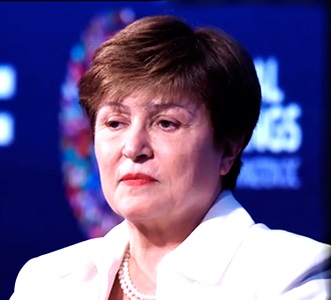
Policy payer pilots policy
In September 2003, Adam Higazi, a researcher from Oxford University, visited Accra, the Ghanaian capital, for two weeks. During Mr Higazi’s short sojourn, he was keen on knowing who Ghana’s policy levers were.
This important policy research was published later with the plain title, “Policy Levers in Ghana.”
Advertisement
The research question to which Mr Higazi looked for answers appeared simple. Our Constitution, after all, says Ghana’s policy deciders are the Ghanaian people.
Article 1(1) resides the sovereignty of the country in the bosom of the citizens. The people in turn elect a government to exercise this sovereignty in diverse ways, including designing and delivering policies for the flourishing of our nation and people.
But as Mr Higazi’s research shows, the policy levers in Ghana are complex.
Ghana’s return to the International Monetary Fund (IMF) for fiscal assistance reengages afresh Mr Higazi’s research question, for which he visited our dear country nearly two decades ago in search of answers: Who really directs policy from the Jubilee House, especially when it matters most as it does now in our pandemic driven world?
Policy pilots
Policy Levers in Ghana, divides important policy levers along the blur lines of governmental and non-governmental policy actors.
Government is an important policy lever. Government is the product of political parties or movements that campaign to be elected based on proposed policies. If elected, government pilots the polis (state) in line with these policies.
In practice, government drives its policies through ministries, the research found. “Ministries have policy leverage because they are responsible for allocating and delivering state resources and services. Development programmes in Ghana, whether instigated from within or externally, are mostly directed through ministerial channels.”
Parliament in its lawmaking role as well as a check on the other coordinate branches of government is an important policy lever.
The Electoral Commission (EC) is a key policy lever in Ghana. Within delegated duties, the EC sets and executes policies relating to public elections and referenda in the country, often consulting with the Inter-Party Advisory Committee (IPAC).
Non-governmental policy levers straddle various civil society groups and the private sector, among them religious organisations, trade unions, NGOs/INGOs, donors, think tanks and the media.
Religious organisations, for example, are important policy levers in preventing and resolving conflict, as the Christian and Muslim Councils have been doing in Ghana.
The Trade Union Congress (TUC) is a crucial policy lever. Crusading the interests and rights of the Ghanaian worker, the TUC acts as a bridge between workers and government.
Development donors are important policy levers. CARITAS, ActionAid, Oxfam, and similar donor groups design development policies of their own as well as partner government in policy delivery.
Few of the active think-tanks during the period of the research that are still vibrant today are the Centre for Policy Analysis (CEPA) and Centre for Democracy and Development (CDD). Think-tanks such as Imani Africa often critically examine policy proposals as they proffer development policies of their own.
Agriculture is a major support base for the success of any policy in Ghana. Fitly, the research identified the Ghana Cocoa Board as a principal policy lever, as cocoa is one of Ghana’s major exports.
In the mining sector, private companies involved in the extraction of Ghana’s major minerals – gold, diamond, bauxite and manganese – are big policy levers.
The media is indispensable to the success of policy. Journalists, newspapers, radio and TV stations play key policy roles.
And of course, chieftaincy is an important policy lever because it is relevant to development at the local level.
International policy levers
The research also identified certain international bodies as primary policy levers in Ghana. The UN, especially the UNDP, is an important policy lever.
And so are countries that give Ghana development aid. The United Kingdom, Netherlands, United States, Denmark, Japan, and Germany were identified as key policy levers in Ghana.
It is the IMF and the World Bank, however, that the research singled out as important international policy levers: “They maintain an important influence over major macro policies, including expenditure, principally through the conditionalities attached to their lending.”
The IMF and the World Bank are such important policy levers because they are “the only means of attaining the large financial inflows needed for” Ghana’s economic reforms.
Policy tune
The saying that he who pays the piper calls the tune relates to policy also. He who pays for policy controls the discourse, design, and delivery of policy.
Time and again, however, policies from international fiscal lenders bode badly for Ghana because they repeatedly fail to address our development needs, and yet we keep returning to them for solutions anytime we are in the fiscal ditch.
The policy lever gospel, however, is etched in stone: he who pays for policy is policy king. This gospel melody should be on our lips as we run to the Fund again, thrusting our shoulder out for our 17th fiscal and policy vaccine.
The writer is a lawyer/doctoral fellow at Fordham Law School, N.Y., USA. E-mail: [email protected]



